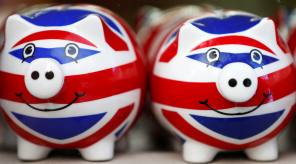

On 3 October, hot US employment data point, Automatic Data Processing private sector payrolls, took the US 10-year Treasury bond yield rocketing toward 3.25 per cent – a level not seen for seven years.
As this was "as violent a move as we have observed in a long, long time,” Joe Amato, chief investment officer for equities at Neuberger Berman, questioned whether markets are headed for ‘bondmageddon’ and if this should cause concern for equity investors.
He said: "Equity markets tend not to go up in the straight line we have gotten used to since mid-2016.
"They do not need a recession as an excuse to correct, either – tightening conditions can push stock prices down even when earnings are sustained.
"The one blip in the straight line came with the run-up in bond yields earlier this year, after all, and the next blip is likely to have the same catalyst. It could well be bigger. It might have kicked off last week."
Richard 'Dickie' Hodges, head of unconstrained fixed income and Nomura Asset Management UK, said while recent moves in the bond market are evidence that the great rotation has now happened, investors are not necessarily going to experience a nightmare but instead "a bad dream”.
He said: "If you believe that the US bond market is headed for a nightmare then you should be equally concerned for the US equity market, as it has to sustain returns that reflect the increased cost of carry – the cost of funding this position.
"Higher yields equal higher cost of financing. The world has bought assets on leverage. When costs go up then this will impact all asset prices. They must adjust to reflect the higher cost of financing by offering higher returns."
Jeff Keen, director of fixed income and macro research at Waverton Investment Management, said: "We are strongly of the view that bond yields are on an upward path from here as extraordinary monetary policy unwinds and as investors start to demand higher real yields to compensate them for inflation risk.
"The big question is what is 'normal' and we don't know for sure what effect Brexit and trade wars might have on global growth.
"This has been an exceptionally long economic cycle, probably due to the support provided by monetary policy. There are no clear signs of a slowdown or a recession in the immediate future but we know that it will occur at some stage."
Adrian Lowcock, head of personal investing at Willis Owen, said the major concern facing investors right now is the pace of tightening by central banks.
He said: "Clearly the big risk is that if US interest rates rise faster than expected, that will have knock-on effects in bond markets. Where bond markets go, equity markets follow."
However, while a rapid rise in interest rates have the potential to cause negative returns in both bond and equity markets in the short term, Mr Lowcock said investors with a long-term outlook should not panic.
Mr Lowcock said: "Be diversified and look through the cycle. With bond exposure, it is important to invest flexibly. Still own bonds, but hold flexible and dynamic managers."



